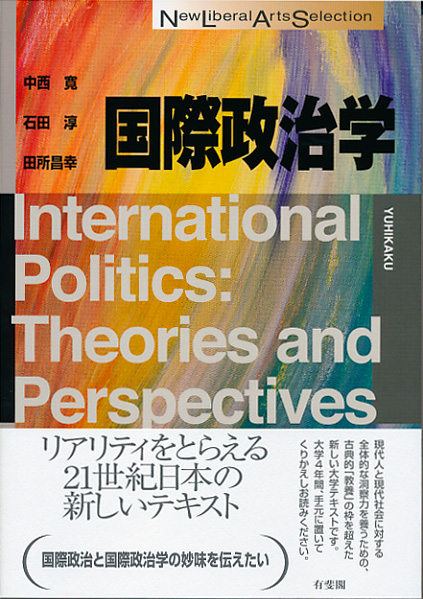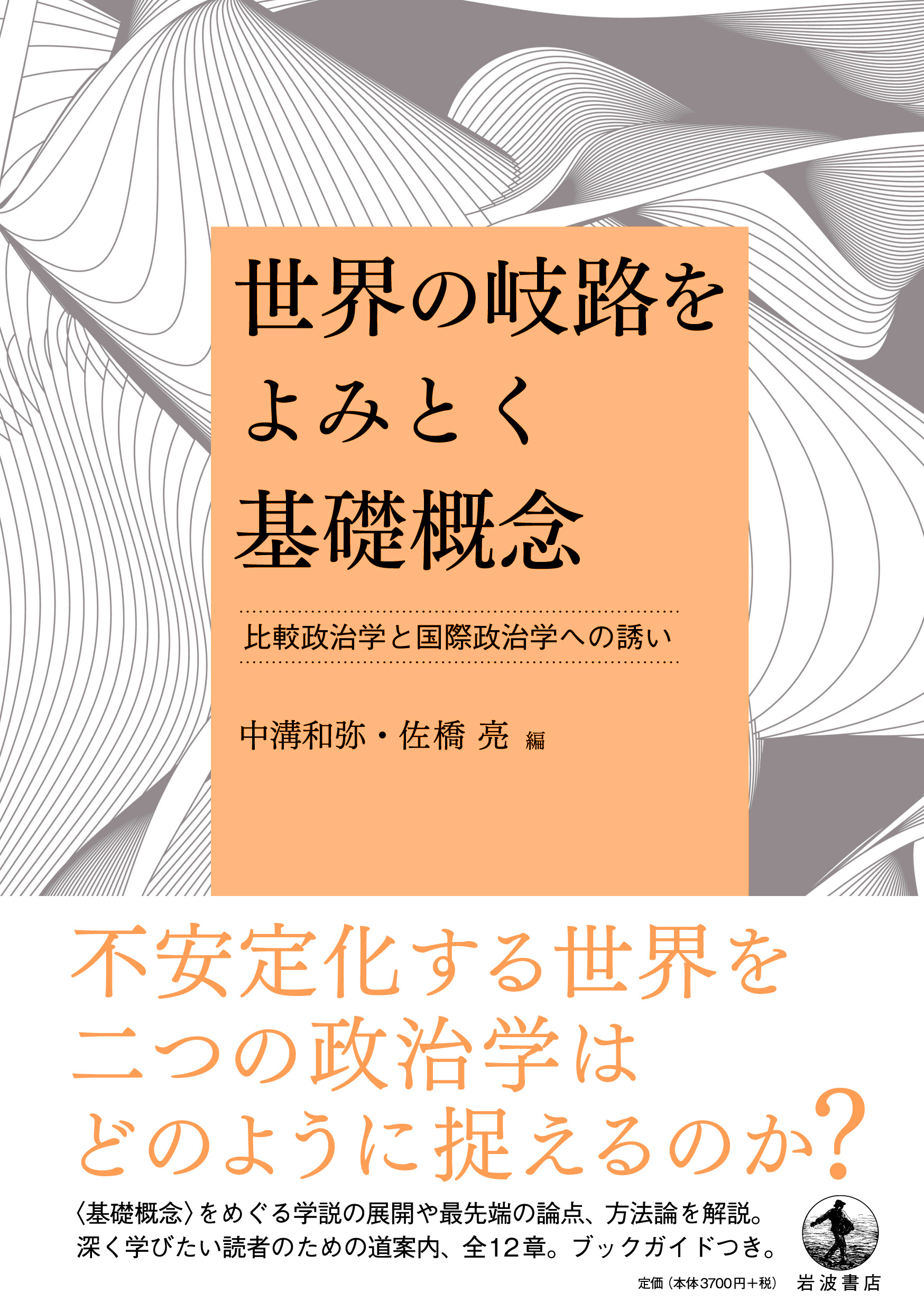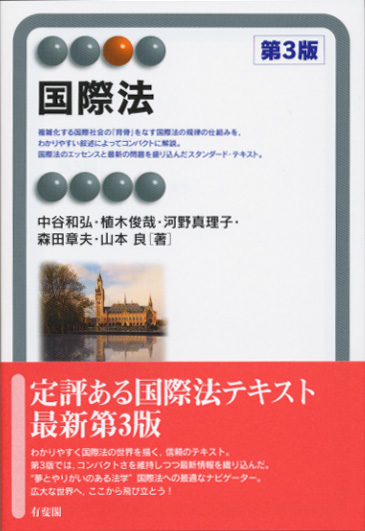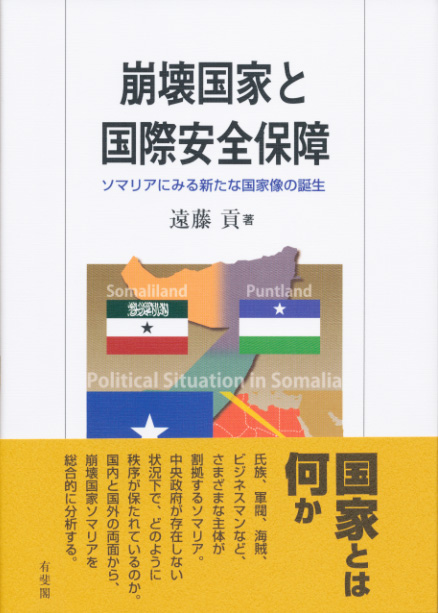
Title
New Liberal Arts Selection Kokusai Seijigaku (International Politics: Theories and Perspectives)
Size
492 pages, A5 format, softcover
Language
Japanese
Released
April, 2013
ISBN
978-4-641-05378-6
Published by
Yuhikaku Publishing
Book Info
See Book Availability at Library
Japanese Page
The distinguishing feature of this book is its analytically consistent synthesis of diplomacy and international order, each of which tends to be discussed separately in the existing literature. This synthesis is made possible by the focus of the book on the consent of the parties involved.
From the distributive viewpoint, politics can be conceptualized as the consent-based distribution of resources of great social value among relevant actors. Suppose that two countries of competing interests alter the distributive status quo by force without mutual consent. This redistribution by force would be irrational, despite its end result, because of its accompanying casualties, physical destruction, and financial expenditures.
Nevertheless, what could derail the diplomatic reconciliation of competing interests and undermine negotiated settlement? An irrational war, which ruins peaceful coexistence, would break out as a product of the misperception of intentions. Types of misperception divide diplomacy into two variants: first, diplomacy of deterrence stresses the credibility of threats to dispel any attempt to unilaterally alter the status quo for the purpose of reducing the risk of war; second, diplomacy of reassurance emphasizes the credibility of promises to refrain from any attempt to unilaterally alter the status quo for exactly the same purpose as above.
The game theoretical methods in this book show that the intentions of actors will be misperceived when unobservable true intentions cannot be inferred from those that are announced because the manipulated perceptions of an actor can serve the interest of its counterpart. The pursuit of its individual interest would not necessarily lead to its realization due to a variety of dilemmas and paradoxes, which are discussed in the book.
Moreover, this book defines order in a society as the existence of consent among its members on the criteria of legitimate membership and rightful action. It regards the interaction between the changing framework of peaceful existence on the international and national levels as the reciprocal reconfiguration of international and national orders. This theoretical view helps the reader understand the historical dynamics of the 20th century, in which a change in the international territorial status quo, most typically collapses of multinational empires, repeatedly triggered serious conflicts over the legal status of specific territories and of specific individuals and groups within given territories. This in turn brought about international pressure regarding the autonomy of the given territories as well as the security of the human and minority rights of those vulnerable individuals and groups.
(Written by ISHIDA Atsushi, Professor, Graduate School of Arts and Sciences / 2018)



 Find a book
Find a book





